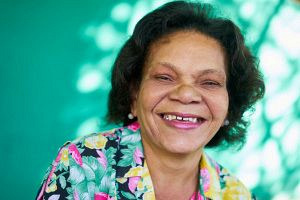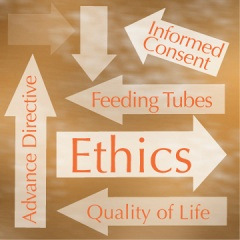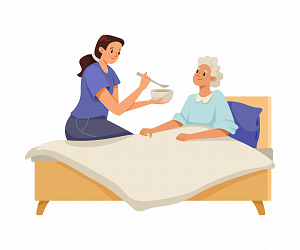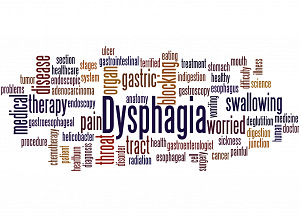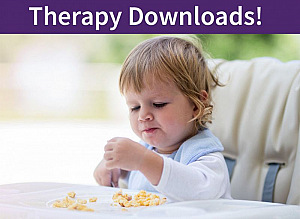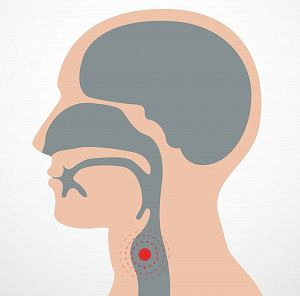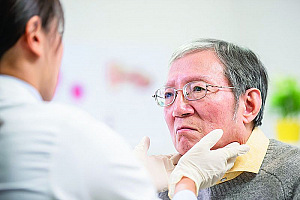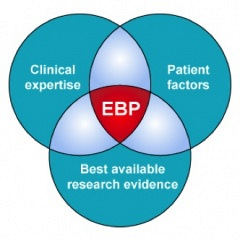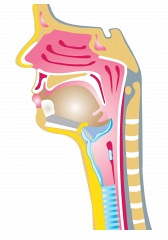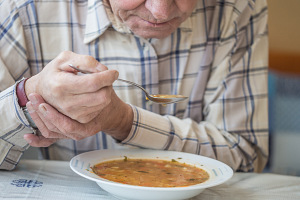"The rating scale for food chaining was informative and I can't wait to try it out! The sections were balanced and helped with learning." B.F. (Jun. 2025)
"The importance of working with other professionals to rule out other potentials causes to selective eating before starting food chaining therapy was the best discussion." J.W. (Jun. 2025)
"Optional foods for modifying to increase table food intake was most helpful. I liked the breakdown into steps of the food chaining method." A.C. (Jun. 2025)
"The rating scales were most beneficial. I liked the examples and case studies." B.W. (Jun. 2025)
"Expanding my knowledge in how to chain foods to increase variety and volume of food intake was most helpful. This course was well organized and easy to access." D.M. (May 2025)
"Examples of food chaining were most beneficial. Great information….case studies were helpful in seeing how techniques are applied." J.W. (May 2025)
"I liked hearing about the creative ways to present the food and get the family involved! The structure was easy to follow. It gave a good amount of information to consider about the client before jumping into the food chaining approach." E.P. (May 2025)
"Everything was helpful. I liked the key strategies you provide." A.S. (May 2025)
"I liked the Rating Scales and the case studies." J.O. (May 2025)
"I liked the examples and case study with theoretical explanation." M.K. (Apr. 2025)
"All the information was useful! I especially liked the different ideas for food chaining." A.J. (Apr. 2025)
"Examples of how to chain foods, case studies, and the importance of looking at the 5 areas or programs before food chaining as they impact feeding and overall acceptance of foods." R.F. (Mar. 2025)
"Reviewing the six steps of food chaining was helpful. I liked the specifics about questions to ask and ways to follow up during the eval." C.W. (Mar. 2025)
"Discussion about who to refer to and when is beneficial. Sometimes SLPs try to do it all. The presenter was clear and knowledgeable about the topics. She seems very familiar with the topics." K.A. (Mar. 2025)
"Talking about ways to expand the diet based on sensory considerations was helpful. I also liked the case studies." H.P. (Mar. 2025)
"I was grateful to learn all about Food Chaining, I have had no formal training in this area. I like how easy it would be to apply this information to working with my students each day. Course gave great examples which are easy to apply to real-life situations." J.D. (Mar. 2025)
"Beneficial strategies for working with picky eaters. Clear, organized, informative." E.B. (Mar. 2025)
"Medical considerations prior to starting to work on feeding were helpful. I liked that the course was broken up into sections." S.S. (Mar. 2025)
"Easy to follow and thorough steps to food chaining process." F.F. (Mar. 2025)
"Concise, informative, and practical. Explanation of food chaining program modifications of accepted foods was beneficial." D.Z. (Mar. 2025)
"Expanding food preferences referral to doctors. Clear and direct information." D.N. (Feb. 2025)
"I found the medical history/background information to be helpful. Also, I enjoyed learning about the rating scale. I appreciated the variety of example cases." C.W. (Feb. 2025)
"The concrete examples of bottles and older child food chaining strategies and techniques were helpful. I liked the rating scale and examples." A.O. (Feb. 2025)
"It was helpful to discuss what red flags and information to look for prior to starting the food chaining plan. The rating scale and the food chain examples were also helpful. I liked the structure and specific approach to treat children and increase their food repertoire." A.M. (Feb. 2025)
"How to chain foods and signs of medical difficulties were beneficial topics." D.F. (Feb. 2025)
"Case studies showing what types of foods were used to expand the diet were helpful. I liked the practical ideas to use in treatment." M.H. (Jan. 2025)
"Love the Princess (or other liked item sequence) for food rating scale." M.B. (Jan. 2025)
"Beneficial discussing the signs to look out for regarding a milk allergy, helping a child and family know how to increase appetite (i.e., omit grazing, reduce milk intake, natural consequences for when they are not hungry etc.) and learning about collaborating with other professionals PRIOR to starting food chaining (i.e., ENT, pulmonologist, OT etc.). Also, I appreciated an overview of the feeding tools (i.e., bottles, spoons, cups, tethers etc.) that aid with oral motor skills. The case studies. Although they were very thorough, it helped to solidify all of the information presented and to think critically." D.N. (Jan. 2025)
"The use of the rating scale and the ideas for stretching foods in the chain was beneficial." T.G. (Dec. 2024)
"This entire course will be beneficial for me! Fantastic examples and explanations of the reasons behind food chaining and examples of how to do it." M.R. (Dec. 2024)
"I liked the case studies and the rating scale. This is helping me in my practice. I found the ability to rewatch things helpful." V.M. (Dec. 2024)
"Discussing the ways to explore foods through the sensory process was helpful. I liked the organization of material presented." A.P. (Dec. 2024)
"Food chaining with sensory progression was beneficial. I liked the case studies." A.A. (Nov. 2024)
"I found the descriptions of medical consideration extremely helpful, the considerations of family counseling, and the case examples of food chaining were all such beneficial pieces. I look forward to implementing this in my practice. I really enjoyed the medical considerations. It was enlightening to really think about all pieces of a child's diagnosis and how it may affect their feeding wholistically." A.B. (Oct. 2024)
"All of the information was helpful, especially how to use food chaining. I liked the specific examples and case studies." P.G. (Oct. 2024)
"All of the information was beneficial. I liked the course format." C.L. (Oct. 2024)
"This course gives very clear, specific strategies for therapists to implement." S.H. (Sep. 2024)
"The ten steps of food chaining were helpful to discuss. I enjoyed the expertise of the presenters." A.P. (Sep. 2024)
"Food chaining and sensory input were beneficial topics." M.P. (Sep. 2024)
"The case studies were very helpful, and honestly, everything was important from the beginning to the end! I liked the specific food-chaining examples. Information about needing to assess the 5 other areas before moving into food chaining." L.G. (Aug. 2024)
"Beneficial review of medical issues to look at more closely prior to trying new foods. I liked all the food examples that were tried in the case studies." J.B. (Aug. 2024)
"Discussing how to expand child's food repertoire but keeping it child-led was beneficial. I liked the organization and progression of the course." R.K. (Jul. 2024)
"Steps to modification of currently tolerated foods was beneficial to discuss. I enjoyed the detailed explanations...from start to finish." H.C. (Jul. 2024)
"Everything was beneficial especially the masking and ideas for how to food chain." A.H. (Jun. 2024)
"I liked all of the information. The rating scales and breaking down case studies were helpful." M.S. (Jun. 2024)
"Addressing sensory needs for food chaining was helpful to discuss. The course was quick and easy to navigate." M.T. (Jun. 2024)
"Sensory modification was a helpful topic. I liked the ease of following the information." N.W. (Jun. 2024)
"Learning about food chaining was beneficial and I enjoyed the examples." M.A. (Jun. 2024)
"The use of rating scales and modifications to accepted foods was helpful." J.B. (Jun. 2024)
"Discussing food chaining was beneficial." S.D. (May 2024)
"The Rating Scale was helpful. The course was easy to follow along with." L.S. (May 2024)
"I loved this training! It was filled with so much useful information. It’s hard to choose which bit of information was most helpful. If I had to choose, I’d say the examples of how to chain different foods. I loved the examples, the questions asked at the end of each section, and just all of the information presented. It all was so helpful!" J.G. (Apr. 2024)
"Use of the Rating Scale was helpful. A very thorough discussion of the topic." W.D. (Apr. 2024)
"Steps for Food Chaining were beneficial. The course gave in-depth and detailed case studies." J.S. (Apr. 2024)
"Food chaining techniques were helpful. Very informative and practical." S.D. (Mar. 2024)
"The rating scale and case studies were the most helpful. Content I can immediately apply to practice." M.S. (Mar. 2024)
"The information in each section was important to know. I believe that the first section about all the medical issues that could interfere with feeding was really important. I really liked the food chaining part of the presentation because it will help myself and my parents look at feeding in different way. I liked learning about the different products and what they're best used for. I liked learning about the different medical issues that can interfere with feeding." L.M. (Mar. 2024)
"Discussing how to chain a specific food and how you can gather similarities in a child's diet to understand their sensory preferences was helpful. I liked how informative this course was and also how it was self-paced and I could do it on my own time. I am a mom and work full time so this was very helpful for me." L.P. (Mar. 2024)
"The 6 steps of the food chaining program were well explained in this course. The case studies certainly helped with my learning." X.J. (Mar. 2024)
"It was beneficial learning about everything that needs to be assessed and all the different professionals that may need to be involved before considering any dietary changes. Learning how to implement a food chaining program. I liked how the rating scales and strategies were broken down and applied to specific clients." D.K. (Feb. 2024)
"Learning how to use a scale with food chaining was helpful. I enjoyed the detailed information on food chaining and how it is incorporated into the treatment of this pt population." M.D. (Feb. 2024)
"The examples of expanding foods were beneficial. I liked the general information regarding food chaining." H.L. (Feb. 2024)
"Discussing portion size and rating scale was helpful." K.C. (Feb. 2024)
"It was beneficial to discuss that evaluation of a child's reaction to a new food should be rated to determine progress, and that food chaining is not linear. I enjoyed the case study and example of food chaining used with actual clients." N.H. (Feb. 2024)
"Food chaining concept was helpful. I liked that I was able to repeat parts that I couldn’t catch well and able to view the course according to my time." O.K. (Jan. 2024)
"All of the course was beneficial, especially the chaining process. Very knowledgeable speakers." M.G. (Jan. 2024)
"The specific examples, like the case studies, were helpful. Kept to the topic at hand and gave several examples." K.M. (Jan. 2024)
"Discussing general guidelines on how to establish a chain was beneficial. I liked the examples of food chains." L.R. (Jan. 2024)
"Loved the rating scale. I liked the presentation organization of: Introduction of what would be discussed, delivery of new information, summary of new information discussed in each section, and short assessment with explanation. Excellent course." J.B. (Jan. 2024)
"I enjoyed the case studies and the overall layout of the course." C.Y. (Jan. 2024)
"All the clinical implications were beneficial. Many feeding CEUs are hospital-based or focus on infants, while this course pertained more to my caseload of toddlers and school-aged children. I liked the pace of the course and the way in which it was broken up. In addition, I thought the case studies were helpful and a good way to apply learning." M.K. (Jan. 2024)
"The Evaluation and Food Chaining sections were helpful. All of the examples!" B.N. (Jan. 2024)
"I get a lot of kids who are on a liquid diet. Info about reducing liquid consumption to increase hunger sensation was beneficial. Easy course to understand and follow. I like how the presentation was divided into sections." T.J. (Jan. 2024)
"The examples of food-chaining foods were beneficial. I liked how the course was broken into sections. The third section was most beneficial to me." M.C. (Dec. 2023)
"The case studies with videos were very helpful. I liked the photo comparisons and case studies." L.H. (Dec. 2023)
"Helpful information regarding the negative effects that mouth breathing has on all aspects of feeding. Implementing a chewing program and using specific feeding utensils to facilitate chewing. I enjoyed the case studies and the food progression examples." A.R. (Dec. 2023)
"Beneficial topics included breathing considerations; taking preferred foods and making slight modifications (to texture / flavor / presentation); ideas for modifying pasta / rice; and reasons why a child might accept food in one situation and refuse it in the next (e.g., due to pressure). I liked that there were many practical examples of children similar to the ones I treat." K.K. (Dec. 2023)
"I liked the examples and case studies and rating scale. I use a sensory hierarchy scale to get to items in mouth and this will be the next level of data that I can collect. Thank you. I liked examples of how to modify the different groups (bread, cheese, etc)." S.F. (Dec. 2023)
"I liked the breakdown of all aspects of picky eating as well as the examples of the scale. It made course easy to understand. I liked the facts and how everything was on a PowerPoint to follow along and take notes." E.L. (Dec. 2023)
"Helpful case studies to see examples of using the food chaining program. I liked that there was information about the whole process (eval, caregiver training, developing treatment)." C.C. (Nov. 2023)
"All of the topics were overall very helpful and beneficial to my daily practice. I enjoyed learning about food chaining." K.H. (Nov. 2023)
"I loved this course. It kept me engaged and gave me TONS of useful information. I especially loved the case histories where I could see the chaining therapy being implemented." F.J. (Nov. 2023)
"The rating scale and methods of diet expansion techniques were helpful. I enjoyed the presentation of the material." T.C. (Nov. 2023)
"The process of food chaining was beneficial to discuss. I liked the range of examples provided." P.L. (Nov. 2023)
"I liked the details provided for the implementation of a food chaining system. Great examples of how to implement it." K.B. (Nov. 2023)
"Provided specific examples of food chaining and explanation of how physiological deficits impact munching/chewing patterns. I liked the clarity of presenters and how they explained how liquid intake (water and milk) impacts intake of solids." S.Y. (Oct. 2023)
"The examples of real clients were beneficial. This course helped me relate to my current clients. I liked the multiple examples of food chain sequences." T.K. (Oct. 2023)
"I loved all the strategies mentioned to expand food choice. Liked how the rating scale helps to track progress." C.L. (Oct. 2023)
"The case studies regarding medically complex food chaining were helpful." M.P. (Sep. 2023)
"I liked all of the suggestions for which foods to go to next given a child's current preference and the emphasis on looking at the whole child. The discussion on different bottles/considerations for each and the difference between the parent and child rating scale was beneficial." S.M. (Sep. 2023)
"This course was informative and provided examples from real cases. I liked discussing the importance of using rating scale." M.S. (Sep. 2023)
"The information about recommended intake for toddlers and strategies to increase eating at meal time was helpful (e.g., reduce amount of milk, reduce grazing, etc). I liked the product recommendations and the rating system." A.K. (Sep. 2023)
"I loved the real life examples and case studies. It really helps put things together. I liked the flexibility to pause and resume when needed." K.S. (Aug. 2023)
"I found the topic of food chaining and how to implement it to be most helpful. I enjoyed the rating scale examples and case studies." G.D. (Aug. 2023)
"Concrete examples and case studies. I liked the rating scale." S.B. (Aug. 2023)
"I thought the rating scale was helpful to use consistently with a child, and it's easy to use with caregivers. I liked the explanation of how to refer and complex needs vs. children with less needs. The case studies brought the program to life, giving real problems/concerns and solutions that happen over time." M.E. (Jul. 2023)
"Framework to consider/organize food and their experiences were beneficial. I liked the case studies." I.L. (Jul. 2023)
"The case studies were helpful! I loved that there was a variety in the severity. This course was very easy to follow along with!" H.N. (Jul. 2023)
"I found the case studies helpful as well as talking through how to food chain. I liked the real life examples." A.A. (Jul. 2023)
"The whole approach seems like it will be an effective way to help expand upon a child’s limited food repertoire. I liked how course was divided into sections, had lots of helpful information in addition to the slides, and had practical information that can be used immediately." K.S. (Jul. 2023)
"Explanation of the food chaining steps was beneficial. I liked the case studies." K.P. (Jun. 2023)
"I plan to encourage my staff to take this course. The evaluation portion of the presentation was a very complete overview and very concise. Personally, I really liked the specific recommendations for spoons, bottles, and cups. I liked the pace and how thorough course was - the case studies were really great." L.H. (Jun. 2023)
"Food Chaining 101, including the specific 6 steps (food chaining is the last step!)" N.E. (Jun. 2023)
"Presenters provided an abundant amount of examples to help relate to clients. Learning what foods can be chained together based on textures was beneficial." C.S. (Jun. 2023)
"I liked the food chaining rating scale and the case studies at the end." M.C. (Jun. 2023)
"I enjoyed the thorough breakdown, examples, and ideas. I liked the case studies and seeing real life examples." M.M. (Jun. 2023)
"The case studies were particularly helpful." S.I. (Jun. 2023)
"This can be immediately applied to therapy. I liked the depth of knowledge presented. Milk-protein allergy was a beneficial topic." M.M. (Jun. 2023)
"I liked all aspects r/t the Food Chaining to assist with the feeding therapy with my clients." S.P. (Jun. 2023)
"The case studies were the most helpful part of the training! They showed real life examples of food chains that could be models for current clients." G.S. (Jun. 2023)
"Rating scales were beneficial (and the recommendation to make one with the child). I liked the practical examples." C.A. (May 2023)
"Discussing the 5 steps to consider before changing foods was beneficial. This course was concise, informative, and visual." S.W. (May 2023)
"This course is clear and to the point. I liked the recommended eating tools/products, and all the examples of food and how it can be modified or expanded as one progressed through therapy." J.C. (Apr. 2023)
"Discussing methods of food training with parents. Easy to comprehend course, good pace." N.L. (Apr. 2023)
"I appreciated the examples of how to chain the food together. I liked the examples." B.B. (Apr. 2023)
"Medical and nutritional considerations, equipment to trial, and case studies to understand examples of chaining were beneficial. I liked the case studies, and being online allowed me to pause and re-listen to ensure my understanding." A.M. (Apr. 2023)
"The feeding strategies to try in therapy were the most beneficial. I enjoyed hearing the case study information." B.M. (Mar. 2023)
"The integration of the child's sensory preferences when determining what food to chain was beneficial. I liked the case history section." R.M. (Mar. 2023)
"Simple food chaining ideas: pulling apart pop tarts, adding 1 tbsp sauce to another sauce, and using flavored broth for rice. I liked the practical pieces and examples, and the rating scale." D.L. (Mar. 2023)
"Learning importance of food education - how effective it can be in daily practice with families of children with picky eating to understand their children better and moreover make mealtime fun rather than stress." C.M. (Mar. 2023)
"Each topic was well explained. I liked the case studies." E.P. (Feb. 2023)
"All the information presented in this workshop was very beneficial. I loved the way presenters linked the red flags in aspects of health history. These are a key piece to implementing the appropriate technique; not just observed feeding skills. The steps to use the therapeutic approach were beneficial." I.V. (Feb. 2023)
"I liked the food chaining technique itself and rating scale." B.M. (Feb. 2023)
"Good overview of expanding food choices. I liked the rating scale." J.H. (Feb. 2023)
"It was a new concept to me so overall course was very helpful. The instructors were clear and concise." M.S. (Feb. 2023)
"The medical and oral motor factors to consider prior to food chaining and the practical examples of food chaining were beneficial." C.M. (Jan. 2023)
"Absolutely everything!! Seriously, the best course I've ever taken! Thank you!" D.E. (Jan. 2023)
"All six steps were helpful. Learning the specific ways to modify foods in the chaining program." H.R. (Jan. 2023)
"The oral motor ideas, such as using tools like the duo spoon, crumbing, and cutting food into rectangles to work on chewing were beneficial. I liked all the examples." J.S. (Jan. 2023)
"I liked the rating scale. Handouts, sectioned material were beneficial." M.R. (Jan. 2023)
"I liked the examples of food chaining specific foods. And the ease of course access." E.O. (Jan. 2023)
"I liked the discussion of food chaining and mapping. And the specific case studies that shared real ideas on how to modify preferred foods." M.D. (Dec. 2022)
"All of this was beneficial. Our dysphagia class in grad school did not offer an in-depth section for treating feeding disorders, especially in the pediatric population. The amount of information given, and the recommendations for treatment were great." A.W. (Dec. 2022)
"I liked the Meal Modification Plan. The topics covered were relevant and everything was explained in a simple way." Z.R. (Dec. 2022)
"The rating scales for food chaining and specific examples of food chains were very informative. Vast amount of information and specific examples given to supplement the information." A.L. (Dec. 2022)
"There were excellent ideas for ways that children can interact with food. Also, the rating scale will be a great way to monitor my kiddos. The presenters were clear and concise. The knowledge checks were great." C.P. (Dec. 2022)
"The structure and information was presented clearly and in an organized way. I liked the ideas presented for chaining different foods." M.R. (Dec. 2022)
"The presentation was simple and easy to follow. The rating scale is helpful. And learning medical reasons a child will not accept foods." M.V. (Dec. 2022)
"I liked the case studies." A.D. (Dec. 2022)
"Course was very specific and explained in detail the concepts." Y.R. (Nov. 2022)
"Understanding how medical problems such as congestion and breathing problems impact feeding. I liked learning how Food Chaining works and the use of the rating system." V.N. (Nov. 2022)
"There are practical suggestions of where to start and how to chain specific foods." S.H. (Nov. 2022)
"Easy to understand course." M.S. (Nov. 2022)
"The case studies were very helpful. Great examples." A.B. (Nov. 2022)
"Food chaining examples, recommendations, tips and tricks, as well as visuals, were very informative. Handouts were easy to follow along with the presentation. Presenters were very knowledgeable and provided fantastic resources, recommendations for actual treatment practice, and case studies/example situations to better achieve learner outcomes." K.W. (Nov. 2022)
"Feeding for craniofacial children under 3 - how to encourage parents in early intervention was good." B.B. (Nov. 2022)
"I found the examples of how to initiate food chaining extremely helpful. I liked that course gave a descriptive overview of food chaining as well as example case studies." K.B. (Nov. 2022)
"The content was easily integrated into clientele examples." D.J. (Nov. 2022)
"I did not know much about food prechaining or chaining. I liked all of the topics. The information was excellent. I liked that I could stop and go and come back where I left off. I liked how I could re-listen as needed." K.H. (Nov. 2022)
"There was a good amount of quality information." A.F. (Nov. 2022)
"A lot of practical usable suggestions! Love the ongoing offering of examples. Just what I need to liven up and change my current sessions." P.B. (Oct. 2022)
"Everything discussed is very important to know when you are working with children that have feeding problems. I liked how the modifications in the foods are helping the kids to expand diet core." R.P. (Oct. 2022)
"Everything was beneficial. Comprehensive and extremely practical course." J.B. (Sept. 2022)
"The presentation was clear." N.U. (Sept. 2022)
"The format was helpful for understanding the material." S.P. (Sept. 2022)
"I liked the clear info that i can use in my cases." J.N. (Sept. 2022)
"The course was very informative." A.B. (Aug. 2022)
"How to practice this feeding chain and step by step, and the videos helped a lot." M.R. (Aug. 2022)
"I liked all of it. New ideas on chaining methods." A.L. (June 2022)
"The order of presentation of information and topics addressed were good. I liked the specific examples of food chaining." C.F. (June 2022)
"I found that the evaluation process as well as changing the flavor rather than the texture of foods will be very beneficial." W.B. (June 2022)
"I liked the layout and the video presentation. Learning the food chaining process and food rating." K.M. (June 2022)
"I liked the direction it provided for completing a proper case history and learning the detailed technique for food chaining." H.L. (June 2022)
"I work with a lot of kiddos in Early Intervention with feeding/swallowing issues. I read the book by the presenters in my first year as an SLP and loved it. I think they have some great ideas that work with the kiddos I serve. I think the rating scale will be most beneficial, especially for some of my older 6-8 year old outpatients who come just for feeding. The presenters explained everything so well. I enjoyed the pictures and hearing the case studies." T.N. (May 2022)
"Everything was great. I'm very interested in feeding therapy and have a child with ASD. Their use of examples helped a lot." (May 2022)
"Information was very clinically based with a lot of good takeaways to use right away." S.B. (May 2022)
"Helped me to know when to refer patients for feeding consultation." P.B. (Apr. 2022)
"I liked the discussion of food chaining and how to implement strategies." S.S. (Apr. 2022)
"I believe the deep specifics on the steps of food chaining and the examples of different foods and liquids that could be incorporated was beneficial" J.T. (Mar. 2022)
"The explanation of food chaining and case studies were helpful for my understanding. Course expanded my knowledge and understanding of what food chaining is and what foods to try with my feeding patients." J.V. (Mar. 2022)
"The case studies combined with the in-depth explanation of food chaining (by food groups) was helpful in understanding the general concepts and how to put them into practice. I enjoyed the pace and real-world examples presented in the course." K.O. (Mar. 2022)
"I liked the hands on examples of how to chain." D.D. (Mar. 2022)
"Rating scales and how to modify foods was beneficial. The case studies helped me piece things together." J.P. (Mar. 2022)
"Course provided good information on how to assess and begin a food chaining program, and also provided examples." J.R. (Feb. 2022)
"EVERYTHING!!! I'm an SLP and I'm new to feeding therapy. New student on my caseload has feeding goals, however, he's 12!" A.A. (Jan. 2022)
"The rating scale will be most helpful in my daily practice when treating children with feeding disorders. The scale will be helpful in creating goals and monitoring progress. I liked how the course was broken up into different segments. It helped me stay focused on the topic and helped me better retain information when I had to pause the course after each section." D.O. (Jan. 2022)
"The presentation was easy to follow, and there were many practical examples of therapy for a variety of infants and children with different feeding needs." J.B. (Jan. 2022)
"I liked the background information about health issues causing picky eating. I'm wondering when EOE came on the radar. My son, now 16, was an extremely picky eater with the associated health issues. We went to so many doctors (pediatricians, allergists, 3 ENTs, immune system doctors). Nobody caught the EOE, despite what I know now to be classic symptoms. We finally figured it out at age 12. We tried more testing, diets, and medications to no avail. At age 14, he went on Neocate and no food for 6 weeks and finally saw remission. At age 14, he was 4'11" and 90 pounds. 18 months later, he was 5'7" and 135 pounds. We still struggle with picky/slow eating. This will be helpful." (Jan. 2022)
"I really enjoyed this course. It really helped me understand how to expand children's diets using their current food preferences. The entire content was wonderful, as well as the case studies and examples. So helpful!" A.C. (Jan. 2022)
